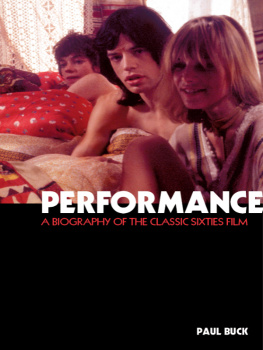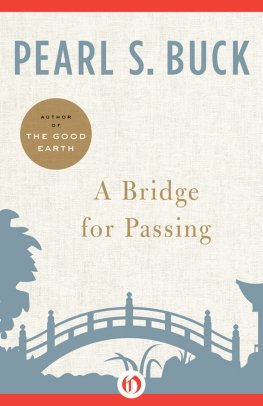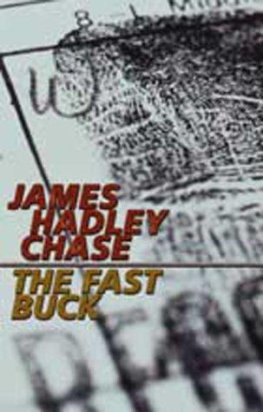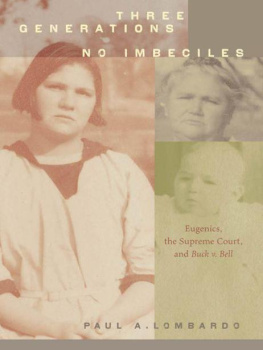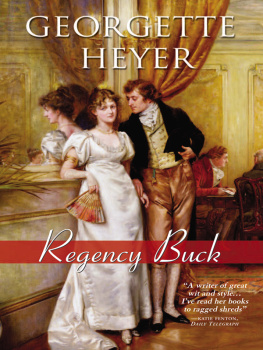Paul Buck - Performance
Here you can read online Paul Buck - Performance full text of the book (entire story) in english for free. Download pdf and epub, get meaning, cover and reviews about this ebook. year: 2012, publisher: Music Sales Limited, genre: Non-fiction. Description of the work, (preface) as well as reviews are available. Best literature library LitArk.com created for fans of good reading and offers a wide selection of genres:
Romance novel
Science fiction
Adventure
Detective
Science
History
Home and family
Prose
Art
Politics
Computer
Non-fiction
Religion
Business
Children
Humor
Choose a favorite category and find really read worthwhile books. Enjoy immersion in the world of imagination, feel the emotions of the characters or learn something new for yourself, make an fascinating discovery.
- Book:Performance
- Author:
- Publisher:Music Sales Limited
- Genre:
- Year:2012
- Rating:5 / 5
- Favourites:Add to favourites
- Your mark:
- 100
- 1
- 2
- 3
- 4
- 5
Performance: summary, description and annotation
We offer to read an annotation, description, summary or preface (depends on what the author of the book "Performance" wrote himself). If you haven't found the necessary information about the book — write in the comments, we will try to find it.
Performance — read online for free the complete book (whole text) full work
Below is the text of the book, divided by pages. System saving the place of the last page read, allows you to conveniently read the book "Performance" online for free, without having to search again every time where you left off. Put a bookmark, and you can go to the page where you finished reading at any time.
Font size:
Interval:
Bookmark:


Copyright 2012 Omnibus Press
This edition 2012 Omnibus Press
(A Division of Music Sales Limited, 14-15 Berners Street, London W1T 3LJ)
Cover designed by Fresh Lemon
Picture research by Jacqui Black
EISBN: 978-0-85712-791-4
The Author hereby asserts his / her right to be identified as the author of this work in accordance with Sections 77 to 78 of the Copyright, Designs and Patents Act 1988.
All rights reserved. No part of this book may be reproduced in any form or by any electronic or mechanical means, including information storage and retrieval systems, without permission in writing from the publisher, except by a reviewer who may quote brief passages.
Every effort has been made to trace the copyright holders of the photographs in this book, but one or two were unreachable. We would be grateful if the photographers concerned would contact us.
A catalogue record of this book is available from the British Library.
Cover Design by Fresh Lemon
Front cover photo by Andrew Maclear/Hulton Archive/Getty Images
Back cover photo Michael Cooper Archive
Author in 1965. Photo by Michael Barnett
For all your musical needs including instruments, sheet music and accessories, visit www.musicroom.com
For on-demand sheet music straight to your home printer, visit www.sheetmusicdirect.com
A JET shoots across the sky, the fastest of its time, a high-performance plane. A Rolls pulls up, more than once, the cream of status and money. A tough guy goes through his paces in the sexual act. A blinding left. Flash of performers swing through a mirror. The gangster goes about his daily job, enforcement with bravado, intimidation. His boss stands before a Magritte, a thoroughbred at his shoulder. A rock icon jumps into frame, in a flash. Jack the lad. Mick Jagger. Everyone knows him, everyone needs somebody. Drugs take us into a world where they perform, we perform. Jagger sings. Chas too is a performer. A juggler. A jongleur. I bet you do. I know a thing or two about performing.
That is a touch or two, two or three things we know about performing, to paraphrase Godard. And we all perform, as we all prostitute ourselves on a daily basis. The Times. Sign of the times.
What a turn-up for the books. Talk about the tragedy of revenge. Sixty-nine. Eighty-one.
Paint it black. Red. Dyed. Dead.
Welcome to Performance, a mosaic in the making, the film that Donald Cammell conceived, drawing in others as associates: Mick Jagger, James Fox, Anita Pallenberg and more enlisting Nic Roeg as his cohort and co-conspirator. And that is just to scratch the surface. To run the razors edge across the image, to perform a Buuelian act on the viewer, or the gangsters predilection (later excised), to unravel, cultivate and explore.
T HE seeds of Performance can be found in an earlier draft for a film to be called The Liars. Reduced to its essentials, The Liars tells the story of Corelli, an American hitman, in Paris on business. Pursued by the police when things go wrong, and discovering that he has misplaced his flight ticket, he makes for the nearest city where he believes he will be able to slip quietly to ground: London. Unable to find a suitable hotel at night, he heads for the area around Earls Court on the recommendation of the taxi driver, his intention being to rent a room. Corelli finds himself in the flat of Haskin, a reclusive pop star, who has quit his band, Spinal Kord, which was also the name for Turners band in the first drafts towards the Performance script, his resignation based on disagreements over the commercialisation of the bands music.
Also living in the flat is Simon, a runaway teenager. She strikes up a relationship with the American, which becomes more amorous as the day proceeds. Haskin meanwhile ventures out into the Swinging London of Chelsea and Soho, taking in the sights and picking up Pherber, a groupie, who winds up in his bed and his bath.
This script, written in 1967, runs to 69 pages, but it is not finished. It does appear, though, to have aspects of Performance in the making, a plot that was essentially the same plot as Performance, as Donald Cammell said in an interview recorded in 1992 that was included in the documentary The Ultimate Performance, produced after his death in 1996 by his brother David Cammell. It also has an affinity with two earlier films: The Touchables (1968), directed by Robert Freeman, even if that film has less obvious traces of the initial scriptwriting, and Avec Avec, which materialised as Duffy (1968), directed by Robert Parrish and starring James Coburn, James Mason, James Fox and Susannah York. This trio of scripts, in which Donald Cammell had varying degrees of involvement, are attempts, like many others of that period, to tap into the eras youth culture, a way to push the buttons on what was required to sell a script and gain admittance to the film world. The Beatles had starred in A Hard Days Night (1964) and Help! (1965), The Dave Clark Five had had a lesser hit with Catch Us If You Can (1965), and there were other endeavours with other pop stars that barely survive in our memories. Some could now be termed Britpop exploitation movies; films like Just for Fun (1963), or similar vehicles such as Band of Thieves (1963) and Every Days a Holiday (1965). They satisfied the desire to see more music stars, since television was such a weak provider of pop culture, its two main programmes, Top of the Pops and Ready Steady Go!, being the only ones to have an important lifespan and impact. As the decade progressed, the tag of Swinging London would be attached to more substantial films, such as Darling (1965), The Knack and How to Get It (1965), Alfie (1966), Morgan: A Suitable Case for Treatment (1966), Blowup (1966)
There are a couple of threads to pull out briefly at this point. Haskin, the pop star in The Liars, bears traits of Brian Jones, with whom Donald Cammell had become friends in Paris through one of his girlfriends, Anita Pallenberg. Indeed, this friendship with Jones was to become Donalds door into the world of The Rolling Stones. Haskins resignation from the band could easily relate to Jones own dissatisfaction with the commercial direction of his own band (I use his advisedly). And further, Jones was gaining an interest in Moroccan music that Cammell was very aware of, for he had introduced Jones to Morocco in the first place. There is also other overlapping common ground, as will unravel.
That said, the character of Haskin, like the character of Corelli, is not properly formed in this draft, whereas the character of Pherber displays a remarkable likeness to Anita Pallenberg, whom Donald was involved with. She was to feature later not only as one of the stars before the camera in Performance, but also acknowledged as playing a considerable part in shaping the whole nature of what was to become Performance. Her name changes in this script from Pilar to Phoebe to Pherber.
It is also worth noting in passing that at this stage the other young woman is called Simon, not Simone, the character who would develop into Lucy. Thus the androgynous aspect is hinted at right from the beginning, an angle that fascinated Donald and would be allowed to bear fruit in
Font size:
Interval:
Bookmark:
Similar books «Performance»
Look at similar books to Performance. We have selected literature similar in name and meaning in the hope of providing readers with more options to find new, interesting, not yet read works.
Discussion, reviews of the book Performance and just readers' own opinions. Leave your comments, write what you think about the work, its meaning or the main characters. Specify what exactly you liked and what you didn't like, and why you think so.

